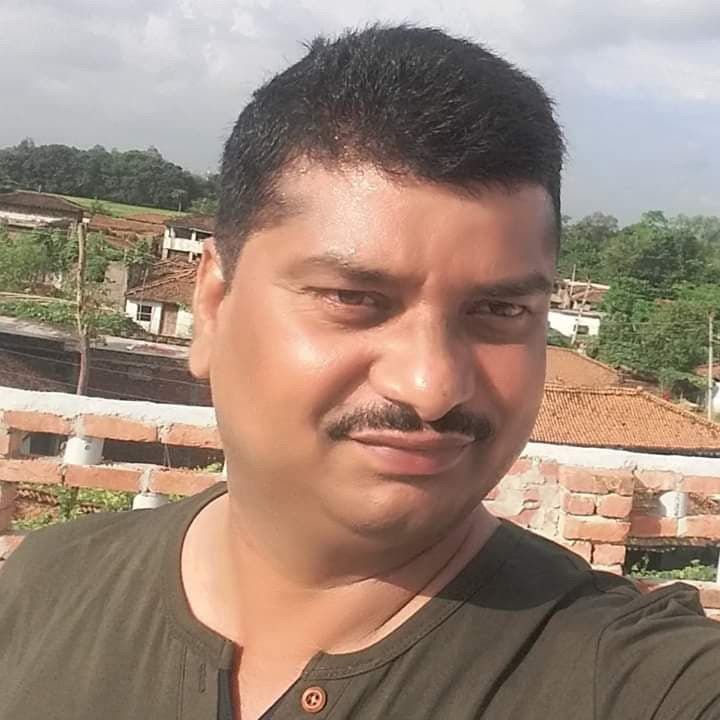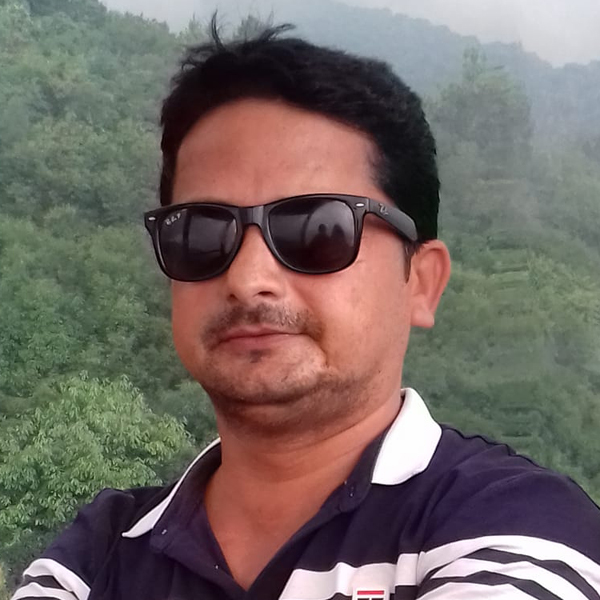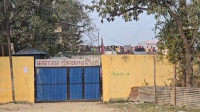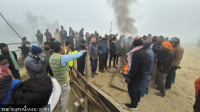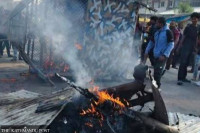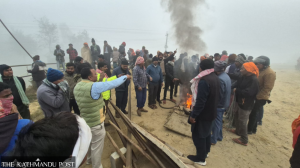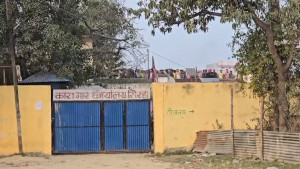Madhesh Province
Youths deprived of citizenship finally find happiness
People unable to acquire citizenship due to a legal vacuum are now flocking to district administration offices following the court’s clearance.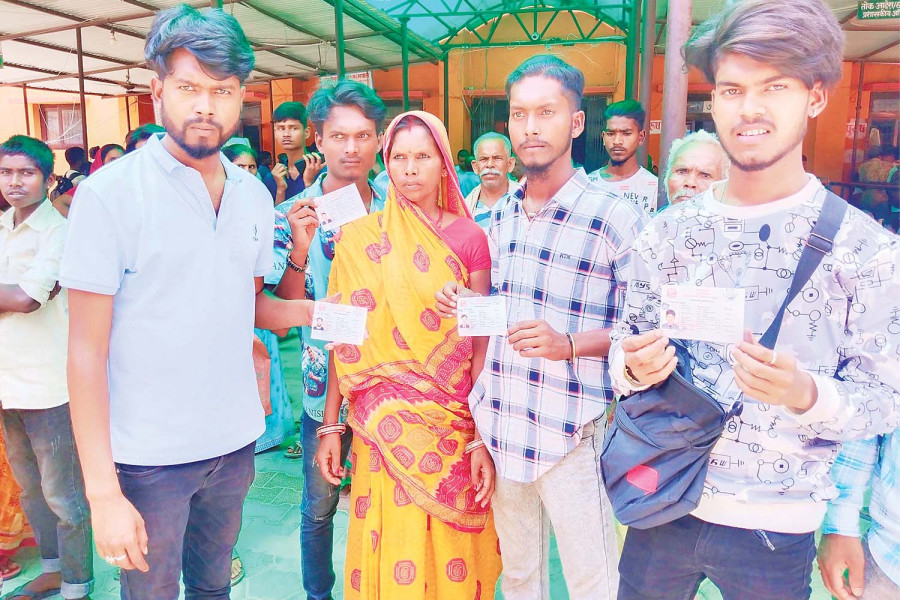
Ajit Tiwari & Shankar Acharya
Indrajit Safi is an engineer by profession. A resident of Dhanusha district, he was on the forefront of the longstanding struggle of thousands of youths deprived of citizenship for years. He spearheaded a sit-in and confrontation at Maitighar in Kathmandu, almost every day ever since the Supreme Court issued an interim order in response to a writ petition filed against President Ramchandra Paudel’s authentication of new amendments to the Citizenship Act. Indrajit’s struggle finally paid off on Sunday as the apex court on Thursday cleared the way for the implementation of new amendments to the Citizenship Act.
Indrajit, along with his mother Sonawati and three brothers, reached the District Administration Office (DAO) in Dhanusha in the first hour on Sunday and submitted all required documents. Indrajit and his three brothers received citizenship by descent from Chief District Officer Kashiraj Dahal.
“This moment has turned all the hardships including those we endured during protests at Maitighar into happiness. I wish nobody will have to struggle for citizenship when they have to focus on studies and make a career,” Indrajit told the Post after he acquired citizenship.
After Indrajit and his brothers were handed over citizenship certificates they hugged their mother. They came down where many people were queuing for citizenship, and took a family photo with the queue in the background. They posted the photo on social media and shared happiness.
Indrajit is the central chairman of the struggle committee of the people deprived of citizenship. The 31-year-old engineer is a resident of ward 3 of Ganeshman Charnath Municipality in Dhanusha. He and his brother could not acquire citizenship when they attained the required age for citizenship. His brothers Ranjit, 29, Chhotu, 22, and Rabin, 21, were visibly elated and credited Indrajit’s long struggle for the joyous moment..
Indrajit has a long history of struggle for citizenship. He had been running from pillar to post for citizenship. “Earlier, I didn’t care much about citizenship, thinking that both my parents have citizenship and I could acquire it easily. I went to Kathmandu to study grade 11 and 12 after passing the School Leaving Certificate in 2013. I was asked to furnish a citizenship certificate to get enrolled for engineering,” Indrajit shared his ordeal.
“I immediately went to Dhanusha to get citizenship. But the district administration office returned me empty handed stating that the Supreme Court prevented people like me from acquiring citizenship certificates,” said Indrajit.
According to him, the DAO employees assured him that a new law would be formulated so that children of the people who acquired Nepali citizenship by birth would get citizenship. “I waited for two years for citizenship. Later I went to India to study engineering after learning that a citizenship certificate was not required to study there,” said Indrajit.
Many people like Indrajit have acquired citizenship after the new amendments of the Citizenship Act came into implementation across the nation. They are now relieved from ‘statelessness’.
“I now feel that I am a citizen of Nepal. My happiness has no bound for being Nepali citizen. I will work for my country,” said Indrajit, a civil engineer.
Renu Kumari Yadav of Bishnupur in Siraha also acquired citizenship. She married a few years ago and gave birth to a daughter. But her child was deprived of birth registration as Renu did not have a citizenship certificate. “I feel that I have won a big battle. It took just about half an hour to get citizenship after fulfilling the necessary process and documents,” said an elated Renu proudly holding her citizenship card.
On Sunday and Monday, the DAO, Parsa was crowded mainly with the youths who waited in serpentine queues for citizenship. They seemed a bit anxious and in a hurry fearing that the Supreme Court or any higher authorities could issue another order to prevent the implementation of the new amendment to the Citizenship Act.
“I was in a panic until I got my citizenship. Finally I am a citizen of my country,” said Bhim Chaube, a 23-year-old man from Birgunj Metropolis-6 in Parsa. He complained that he had been offered to work as an accountant in a multinational company along the Parsa-Bara Industrial Corridor last year, but he could not take the offer as he did not have a citizenship. “Now that I have a citizenship certificate, I will find a good job,” said Chaube.
According to Binaya Kumar Shrivastav, spokesman at the DAO in Parsa, around 70 people who were earlier deprived of citizenship, acquired citizenship on Sunday alone.
In Morang, Niraj Kamat who attempted to self-immolate at Maitighar in the first week of June protesting the Supreme Court’s interlocutory interim order not to implement the new amendments of the Citizenship Act, received citizenship on Monday. Chief District Officer of Morang Birendra Kumar Yadav handed him the citizenship certificate.
“I was deprived of opportunities and benefits provided by the state due to the lack of citizenship. I returned from the mouth of death and finally acquired citizenship. Our protests finally paid off,” said Kamat, aged 25, of Katahari Rural Municipality-4. He said his dream to be a police officer was ruined due to the lack of citizenship and he could not continue his studies in desperation. According to him, his father Kisun Dev Kamat had acquired citizenship by birth while his mother Gulab Devi Chaudhary had acquired citizenship by descent, but he was deprived of citizenship.
The Supreme Court on Thursday cleared the way for the implementation of new amendments to the Citizenship Act that were authenticated by President Paudel. A division bench of justices Ananda Mohan Bhattarai and Kumar Regmi decided not to give continuity to the interlocutory interim order earlier issued by the single bench of Justice Manoj Sharma.
Hearing the writ petition filed by senior advocates Surendra Bhandari and Bal Krishna Neupane, the apex court on June 4 had ordered authorities not to enforce the new amendments. The petitioners had filed the petition at the apex court following the President’s authentication of the amendment bill, stating that President Paudel had endorsed the Citizenship Bill unconstitutionally.
The court’s latest order has cleared the way for thousands of children of parents who got citizenship by birth to acquire citizenship by descent. The new amendment is expected to benefit around 400,000 people.
President Ram Chandara Paudel on May 31 had authenticated the bill—the same one that his predecessor Bidya Devi Bhandari had twice refused to endorse—after repeated requests from the government followed by a series of consultations with legal and political experts.
(With inputs from Deo Narayan Sah in Morang)




 10.12°C Kathmandu
10.12°C Kathmandu